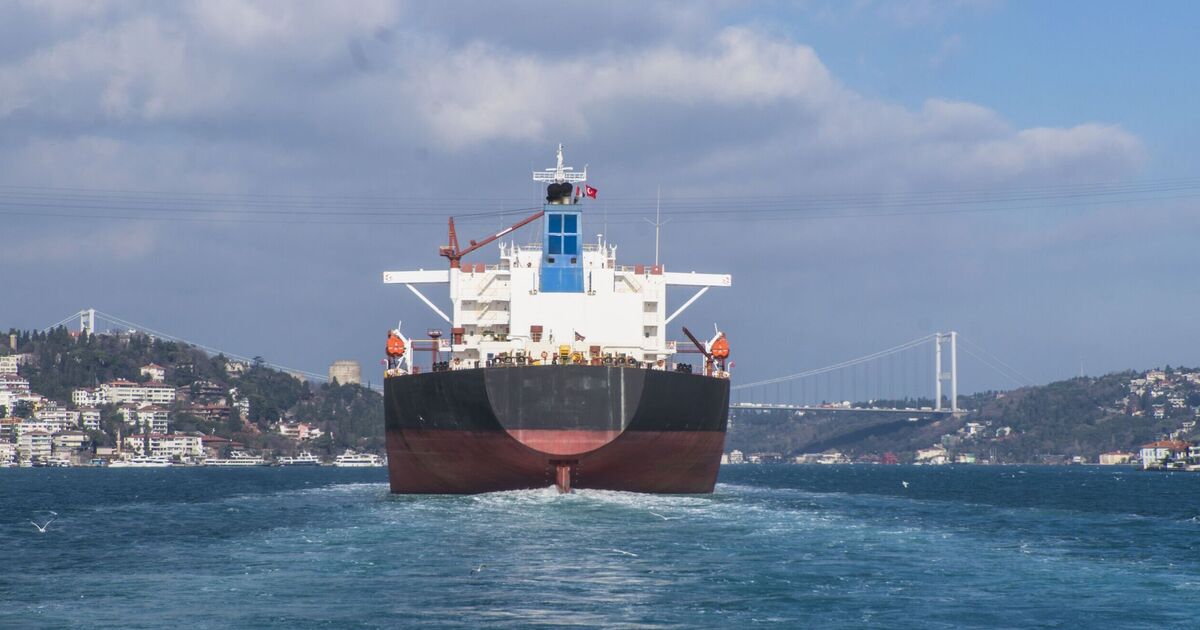Europe could be set to rival the Suez Canal by launching its own ambitious project in one of the continent’s largest countries. Turkey is hoping that its Istanbul Canal project, announced by President Recep Tayyip Erdogan in 2021, could turn the city into the centre of global trade and expand the country’s influence around the world.
Beyond this, the project – estimated to cost an eyewatering £20billion – also looks set to transform the city geographically. The canal would bisect the European side of Istanbul, effectively forming an island between Asia and Europe. Set to be built in Istanbul’s western region, the corridor is expected to create a navigable link between the Black Sea and the Sea of Marmara, much like the Suez Canal, located in Egypt, which connects the Mediterranean to the Red Sea, effectively dividing Africa and Asia. Istanbul’s strategic position – straddling Europe and Asia across the Bosphorus Strait – makes it the perfect place for a new trade route. The Black Sea lies on one side of the city, with the Sea of Marmara – which connects to the Aegean, and, therefore, the Mediterranean – on the other.
The Bosphorus Strait is now struggling with heavy traffic. The new project is set to allow the passage of 160 ships or tankers every year, alleviating some of the pressure on the Strait.
The Istanbul Canal initiative was spearheaded by the Turkish President, who in 2021 referred to the undertaking as his “crazy project”. He said: “Today, we are opening a new page in the history of Turkey’s development.
“We see Canal Istanbul as a project to save the future of Istanbul […] to ensure the safety of life and property of Istanbul’s Bosphorus and the citizens around it.”
Despite being initially met with scepticism, Turkish authorities have progressed with plans as they pursue goals of enhancing Turkey’s economy and growing the country’s global influence.
The canal will be 45 kilometres long, 400 to 1000 metres wide, and up to 25 metres deep. It will feature six bridges connecting it to the European side of Istanbul. It will be able to accommodate boats up to an impressive 349 metres in length and 77 metres in width.
Currently, three major bridges span the Bosphorus Strait, connecting the European and Asian sides of the city: the 15 July Martyrs Bridge, the Fatih Sultan Mehmet Bridge, and the Yavuz Sultan Selim Bridge. With a canal framing each side of the city, Istanbul will effectively become an island once this project is completed, meaning those new bridges will be vital.
However, the project has not received full support. Critics raised concerns about its impact on Istanbul’s ecosystem. Construction will mean a loss of agricultural land, with thousands of protected flora and fauna habitats at risk of dying out. The project is also likely to destroy villages and displace residents in its path. Hundreds of homes, particularly in the village of Yeniköy, are directly in the path of the canal’s northern mouth and will be required to move.
Nevertheless, the Turkish government pressed forward with its vision, highlighting the economic and commercial benefits the canal would bring to the nation.
Work is underway on the canal and the ambitious project’s surrounding infrastructure. Set for completion in 2027, this strategic location is expected to attract numerous commercial and tourism projects, further enhancing the city’s economic opportunities.
The value of the Istanbul Canal project is estimated at £20billion, comprising £8billion for building areas on both sides of the canal and £12billion for the canal’s construction itself.
